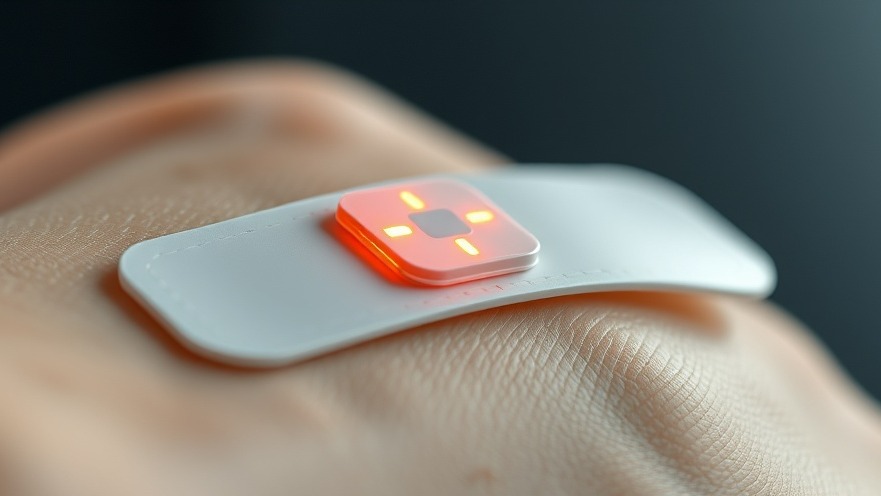
The Future of Healing: A Glimpse at Smart Bandage Technology
In the realm of modern medicine, technological advancements continue to reshape patient care. Among these innovations is the iCares smart bandage, a revolutionary development that has successfully transitioned from animal testing to real-world human applications. Created by researchers at California Institute of Technology, this smart bandage acts not only as a protective covering for chronic wounds but also as a sophisticated monitoring system that offers real-time health insights.
Understanding the Complexity of Chronic Wounds
Chronic wounds, often associated with conditions such as diabetes or peripheral vascular disease, pose significant challenges for both patients and healthcare providers. Traditional dressings can fall short in managing these complex wounds due to issues like infection and moisture retention. The iCares bandage addresses these pitfalls by incorporating advanced technology that monitors wound conditions and aids in the healing process.
How iCares Works: A Technological Marvel
At the heart of the iCares bandage is its innovative microfluidic system, which samples fluid from the wound site continuously. This system ensures that the samples analyzed are fresh, providing accurate readings of biomarkers like nitric oxide—a sign of inflammation—and hydrogen peroxide, indicating infection. By monitoring these vital indicators in real-time, healthcare practitioners can take timely action, potentially preempting complications before they arise.
Benefits for Patients and Providers
For concierge health practitioners especially, the benefits of the iCares bandage are multifaceted. Not only does it enhance the quality of care provided to patients, but it also fosters a deeper understanding of individual healing processes. With real-time data, healthcare providers can adopt more personalized treatment protocols, ensuring that interventions are tailored to each patient's unique needs.
Integrating Smart Bandages into Practice
This technology heralds a new era for wound management in clinical settings. As the iCares bandage becomes more widely available, practitioners keen on leveraging its capabilities will need to consider how it fits within their existing treatment frameworks. Training staff on the implications of this technology and integrating data-driven insights into routine care are critical steps in maximizing its potential.
Evaluating Long-term Outcomes with Machine Learning
The research team has also implemented a machine-learning algorithm that analyzes data collected by the bandage. This algorithm could significantly enhance decision-making processes, allowing practitioners to identify patterns and predict healing trajectories. By approaching wound care from a data-centric perspective, healthcare providers can not only improve patient outcomes but also refine their overall practice efficiencies.
Looking Forward: The Future of Smart Wound Management
As the field of wearable medical technology continues to evolve, it's imperative for healthcare practitioners to stay informed about advancements like the iCares bandage. Potential future iterations may enhance existing features, making smart bandages even more indispensable in both acute and chronic care settings.
Practitioners should remain proactive in understanding how to utilize such technologies effectively, ensuring they provide cutting-edge care that aligns with the latest in medical innovation. By integrating devices like the iCares bandage into their practices, health professionals not only elevate their services but also engage patients in a more meaningful, transparent way.
As a call to action, we encourage healthcare providers to research the implications of smart bandages thoroughly and consider initiating discussions in their practices about how these innovations can enhance patient care. The shift towards tech-enhanced treatment methodologies is not just a trend; it could be a fundamental transformation in healthcare delivery.
 Add Row
Add Row  Add
Add 






Write A Comment